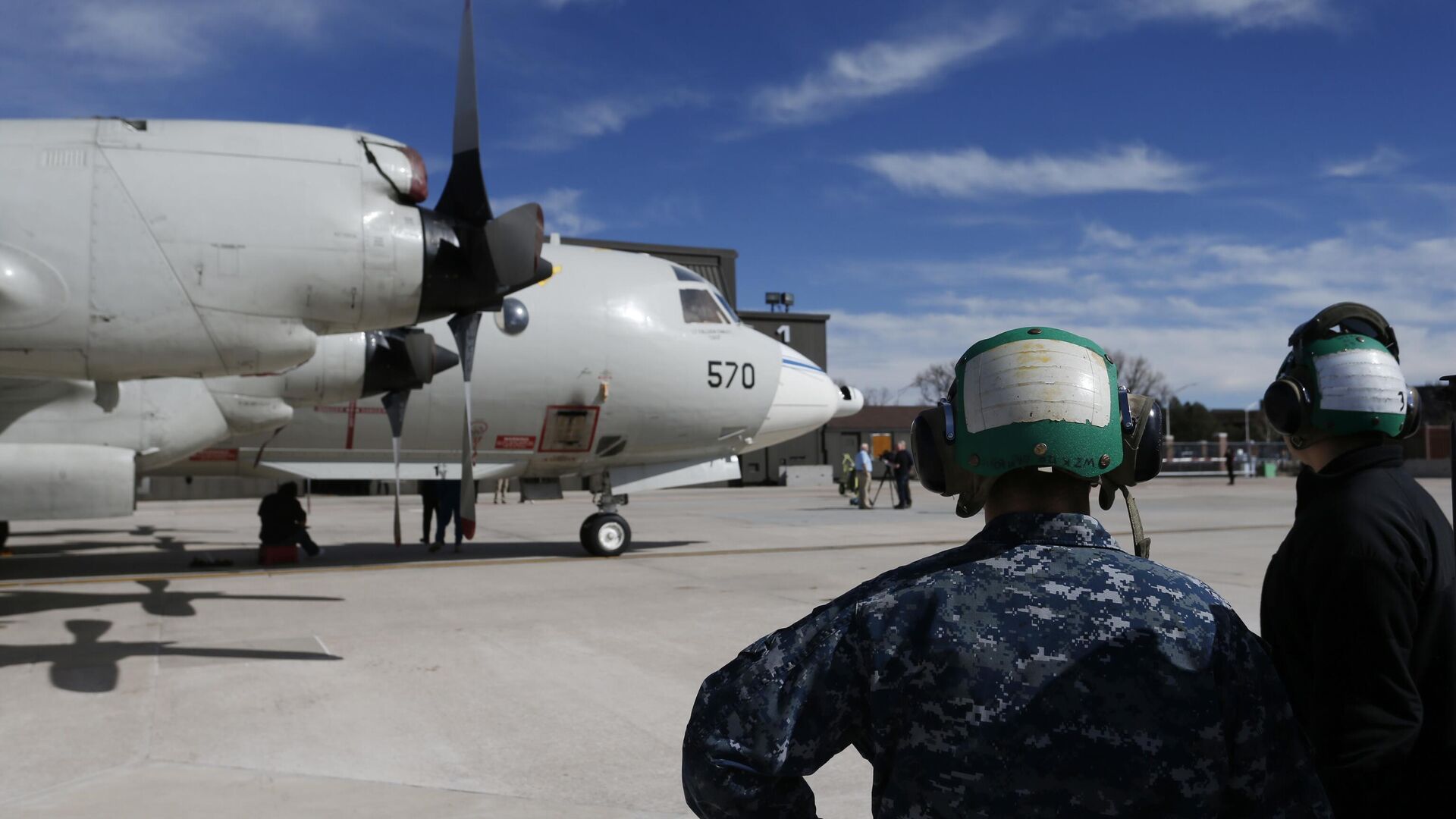https://sputnikglobe.com/20230320/pentagon-study-finds-high-cancer-rates-among-military-pilots-ground-crews-1108579009.html
Pentagon Study Finds High Cancer Rates Among Military Pilots, Ground Crews
Pentagon Study Finds High Cancer Rates Among Military Pilots, Ground Crews
Sputnik International
A recent Pentagon report has revealed alarming rates of cancer among military pilots, and for the first time, also confirmed that ground crews responsible for fueling, maintaining and launching aircraft are also becoming sick.
2023-03-20T00:48+0000
2023-03-20T00:48+0000
2023-04-13T12:45+0000
military
pentagon
new study
study
cancer
lung cancer
breast cancer
military pilots
pilots
https://cdn1.img.sputnikglobe.com/img/07e7/03/14/1108578860_0:160:3073:1888_1920x0_80_0_0_fc1ec010eb4454b8141bcce9bf32cd59.jpg
The study analyzed data from almost 900,000 service members who had either flown or worked on military aircraft between 1992 and 2017.Adjusting for age, sex and race, the report found that air crew members had:WithGround crews, too, were found to have higher rates of cancer:The study, one of the most extensive of its kind, compared the service members to the general US population, and even with the broad approach, the Pentagon acknowledged that the actual number of cancer cases was likely to be higher because of gaps in the data.The study’s limitations include the fact that the military health system database used in the study did not have reliable cancer data until 1990, so it may not have included pilots who flew early-generation jets in the prior decades.Additionally, the report did not capture cases from former crew members who got sick after leaving the military medical system.The Pentagon is now going to pull data from Veterans Affairs and state cancer registries to add to the total count and remedy the study's gaps.The study suggests that isolating the potential causes of cancer in the military is challenging due to multiple factors such as family histories, smoking or alcohol use, and other potential confounding factors.The second phase of the study will attempt to isolate causes and identify the carcinogenic toxicants or hazardous materials associated with military flight operations, as well as determine the type of aircraft and locations where diagnosed crews served.However, the study did find that when crew members were diagnosed with cancer, they were more likely to survive than members of the general population. The study suggested that this was due to regular required medical checkups and military fitness requirements, which likely led to earlier diagnoses and better overall health.The report’s findings have been a long-time concern for retired military aviators, who have been raising alarms about the number of air and ground crew members they knew who had cancer. These aviators had been told previously that they were not at greater risk than the general US population.Retired Air Force Col. Vince Alcazar, a member of the Red River Valley Fighter Pilots Association, which had lobbied the Pentagon and Congress for help, said the study "proves that it’s well past time for leaders and policymakers to move from skepticism to belief and active assistance."
https://sputnikglobe.com/20230317/breakthrough-geographic-ancestral-link-made-between-breast-cancer--orkney-islands-in-new-study-1108511367.html
https://sputnikglobe.com/20220628/symptom-you-can-smell-several-signs-point-to-likelihood-of-cancer-study-claims-1096745166.html
Sputnik International
feedback@sputniknews.com
+74956456601
MIA „Rossiya Segodnya“
2023
News
en_EN
Sputnik International
feedback@sputniknews.com
+74956456601
MIA „Rossiya Segodnya“
Sputnik International
feedback@sputniknews.com
+74956456601
MIA „Rossiya Segodnya“
pentagon, cancer among pilots ground crew, cancer factors, reasons of cancer, is it true that pilots have a higher chance of getting cancer, cancer studies
pentagon, cancer among pilots ground crew, cancer factors, reasons of cancer, is it true that pilots have a higher chance of getting cancer, cancer studies
Pentagon Study Finds High Cancer Rates Among Military Pilots, Ground Crews
00:48 GMT 20.03.2023 (Updated: 12:45 GMT 13.04.2023) A recently released report by the Pentagon has revealed alarming rates of cancer among military pilots, and for the first time, it has also confirmed that ground crews responsible for fueling, maintaining and launching aircraft are also becoming sick.
The study analyzed data from almost 900,000 service members who had either flown or worked on military aircraft between 1992 and 2017.
Adjusting for age, sex and race, the report found that air crew members had:
87% higher rate of melanoma
39% higher rate of thyroid cancer
male workers had a 16% higher rate of prostate cancer
female workers had a 16% higher rate of breast cancer
the overall rate for cancers of all types was 24% higher
Ground crews, too, were found to have higher rates of cancer:
19% higher rate of brain and nervous system cancers
15% higher rate of thyroid cancer
9% higher rate of kidney or renal cancers.
female workers had a 7% higher rate of breast cancer
the overall rate of cancer for all types was found to be 3% higher.
The study, one of the most extensive of its kind, compared the service members to the general US population, and even with the broad approach, the Pentagon acknowledged that the actual number of cancer cases was likely to be higher because of gaps in the data.
The study’s limitations include the fact that the military health system database used in the study did not have reliable cancer data until 1990, so it may not have included pilots who flew early-generation jets in the prior decades.
Additionally, the report did not capture cases from former crew members who got sick after leaving the military medical system.
The Pentagon is now going to pull data from Veterans Affairs and state cancer registries to add to the total count and remedy the study's gaps.
The study suggests that isolating the potential causes of cancer in the military is challenging due to multiple factors such as family histories, smoking or alcohol use, and other potential confounding factors.
The second phase of the study will attempt to isolate causes and identify the carcinogenic toxicants or hazardous materials associated with military flight operations, as well as determine the type of aircraft and locations where diagnosed crews served.
However, the study did find that when crew members were diagnosed with cancer, they were more likely to survive than members of the general population. The study suggested that this was due to regular required medical checkups and military fitness requirements, which likely led to earlier diagnoses and better overall health.
The report’s findings have been a long-time concern for retired military aviators, who have been raising alarms about the number of air and ground crew members they knew who had cancer. These aviators had been told previously that they were not at greater risk than the general US population.
Retired Air Force Col. Vince Alcazar, a member of the Red River Valley Fighter Pilots Association, which had lobbied the Pentagon and Congress for help, said the study "proves that it’s well past time for leaders and policymakers to move from skepticism to belief and active assistance."




